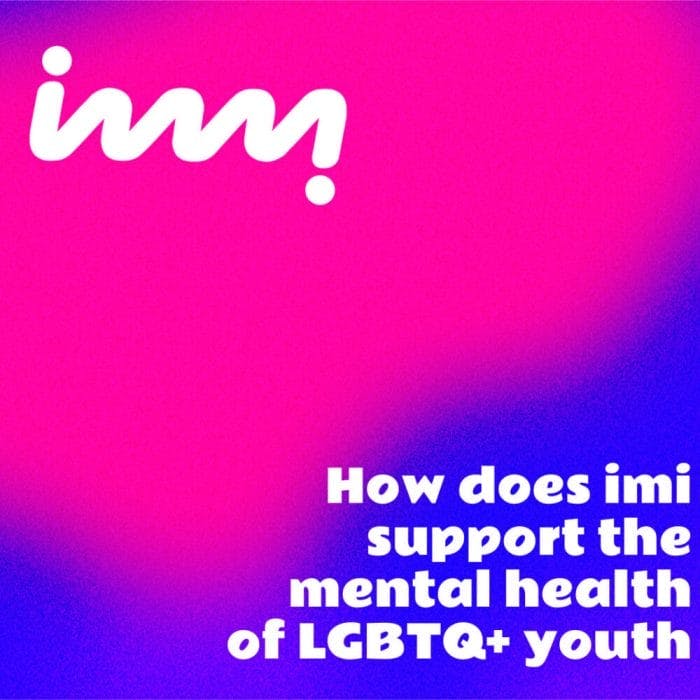Unpacking the results of a pilot randomized control trial of imi, a web app designed to improve mental health by supporting LGBTQ+ identity affirmation and boosting positive coping skills
Background
Due to the stress arising from stigma and discrimination, LGBTQ+ youth are more than twice as likely to report feeling sad and hopeless, and more than three times as likely to have contemplated suicide than their straight and cisgender peers. These problems are further compounded for BIPOC (Black, Indigenous, and People of Color) and transgender youth, who face multiple sources of discrimination due to their race, ethnicity, and gender identity. Hopelab, in partnership with CenterLink and the It Gets Better Project designed imi to address these mental health disparities. imi is a web application that supports LGBTQ+ teens’ mental health by affirming their identities and helping teens cope with the stress imposed by discrimination. Data from a randomized controlled trial, described below, indicates that imi is effective at promoting the well-being of LGBTQ+ teens, helping them to develop positive coping skills and mindsets.
Understanding the study
Researchers at Hopelab and the University of Pennsylvania’s Program on Sexuality, Technology, and Action Research (PSTAR) conducted a pilot randomized controlled trial to understand how imi supports the mental health of LGBTQ+ youth. Researchers enrolled 270 LGBTQ+ youth ages 13-19, living in the United States. Approximately 78% of the sample identified as racial and/or ethnic minorities, and approximately 60% of the sample identified as transgender, gender non-conforming, or non-binary. Participants were randomly assigned to either a treatment or control group. The treatment group received access to the full imi intervention web app, consisting of four interactive guides on topics LGBTQ+ teens identified as important to them, including gender identity, LGBTQ+ identity, stress and coping, and internalized homophobia and transphobia. The treatment group also received a web-based list of freely available, vetted resources for LGBTQ+ youth. The control group only received the web-based resource list and did not receive any of the other content in the imi guides. This allowed for a test of whether imi offers teens a resource that goes above and beyond existing, freely accessible web resources.
Over the course of four weeks, researchers assessed coping skills and mindsets, mental health symptoms, and intervention satisfaction. Participants in both groups completed assessments via web-based surveys at baseline and at the 4-week follow-up.
The results
Results from the trial show that imi boosts positive coping skills and mindsets that are important for supporting the mental health of LGBTQ+ youth. Teens randomly assigned to receive the full imi web app reported significantly greater improvements in coping skills, and significantly greater confidence in their coping abilities than those randomly assigned to the resource-only control group. They also were significantly more satisfied with the imi web app than the control group and reported being more likely to recommend the web app to an LGBTQ+ friend.
Participants also gave open-ended feedback regarding their experience with imi. Many participants had positive feedback, of which a few select quotes are noted here.




